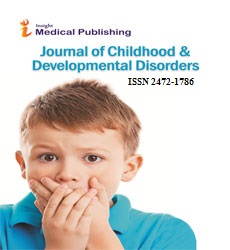Abstract
ChildrenÃÆâÃâââ¬Ãâââ¢s Depression Inventory: Testing Measurement Invariance for the Hierarchical Factor Model Across Children and Adolescents in a Clinic-Referred Sample
The Children’s Depression Inventory is a self-report scale for screening depressive disorders in children and adolescents. The original model proposed by Kovacs has a hierarchical factor structure: Five first-order and a single second-order factors. This study used confirmatory factor analysis (CFA) to examine support for this model. It also examined measurement invariance of this model across selfratings provided by clinic-referred children (N=459) and adolescents (N=343), and the differences in the first- and second-order latent factor mean scores across these groups. The findings supported the hierarchical factor structure, and also full measurement invariance for this model across the groups compared. Also all latent mean scores were higher in the adolescent group. These findings indicate support for the original CDI model proposed by Kovacs, and also that the ratings provided by clinic-referred children and adolescents can be compared as they are not confounded by different measurement properties. Also, depression is higher among adolescents than children.
Author(s):
Rapson Gomez and Alasdair Vance
Abstract | Full-Text | PDF
Share this

Google scholar citation report
Citations : 504
Journal of Childhood & Developmental Disorders received 504 citations as per google scholar report
Abstracted/Indexed in
- Google Scholar
- China National Knowledge Infrastructure (CNKI)
- Directory of Research Journal Indexing (DRJI)
- WorldCat
- Publons
- Geneva Foundation for Medical Education and Research
- Secret Search Engine Labs
- Euro Pub
Open Access Journals
- Aquaculture & Veterinary Science
- Chemistry & Chemical Sciences
- Clinical Sciences
- Engineering
- General Science
- Genetics & Molecular Biology
- Health Care & Nursing
- Immunology & Microbiology
- Materials Science
- Mathematics & Physics
- Medical Sciences
- Neurology & Psychiatry
- Oncology & Cancer Science
- Pharmaceutical Sciences

